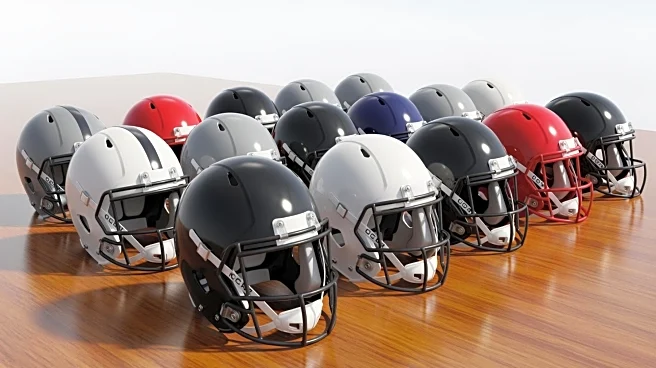What's Happening?
The Sporting News has published its latest Midwest high school football Top 25 rankings as the regular season nears its conclusion. The rankings have seen significant changes, with several teams experiencing losses, including Iowa's Waukee Northwest and
West Des Moines Valley. The top position remains unchanged with Nebraska's Millard South holding the lead. New entries in the rankings include Central City from Nebraska, Centennial from Minnesota, and Grundy Center from Iowa. The rankings reflect the dynamic nature of high school football in the Midwest, with teams vying for top positions as the season progresses.
Why It's Important?
These rankings are crucial for high school teams as they provide recognition and can influence college recruitment and scholarship opportunities for players. The rankings also generate local and regional interest in high school sports, fostering community support and school spirit. For the teams, being ranked can boost morale and provide motivation to maintain or improve their standings. The changes in rankings highlight the competitive nature of high school football in the Midwest, where teams are constantly striving to outperform each other.
What's Next?
As the season progresses, teams will continue to compete in their remaining games, with the potential for further shifts in the rankings. Schools will focus on preparing for upcoming matches, aiming to secure higher positions before the season ends. The outcomes of these games will be closely watched by scouts and college recruiters, who are interested in identifying promising talent for future college football programs. The final rankings will be pivotal in determining playoff positions and potential state championship contenders.
Beyond the Headlines
The rankings also underscore the importance of sports in high school education, promoting teamwork, discipline, and physical fitness among students. They highlight the role of sports in shaping young athletes' futures, providing them with opportunities to excel both on and off the field. Additionally, the rankings can impact local economies, as successful teams often draw larger crowds to games, benefiting local businesses and creating a sense of community pride.















